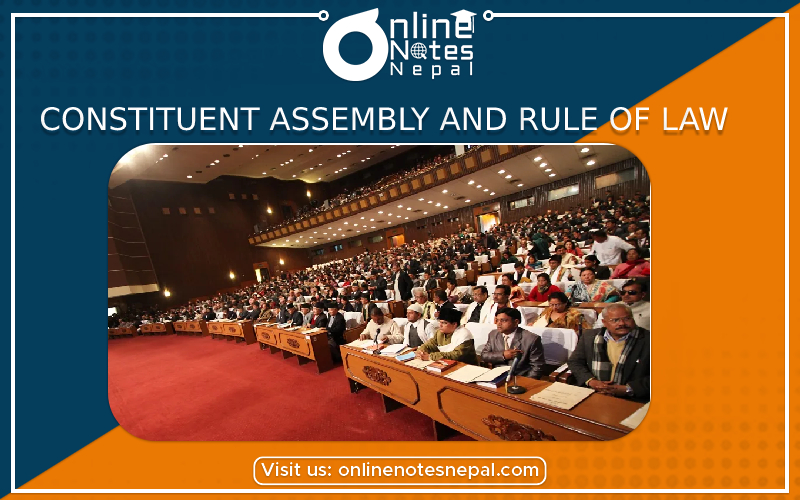Published by: Mandira
Published date: 17 Jan 2022

Constituent Assembly is the process of drafting the constitution. It is the assembly of elected people’s representatives formed in order to draft the constitution. It is the outcome of the democratic movement. In the process of constituent assembly, there is more participation of people and they have the right to write their constitution by themselves. Thus, the constituent assembly is regarded as a democratic practice for drafting the constitution. There are proportionate representation and involvement of the people of every caste, sex, geographical region, etc. It is also taken as one of the most democratic ways of drafting a constitution. So, it is more trustworthy for the promulgation of the constitution.
Necessity of Constituent Assembly in Nepal
In the history of Nepal, altogether 6 constitutions were promulgated. They were made by a single authority. All of them did not comprehend the sentiments of the people and their aspirations due to which Mass Movement 2062/63 took place and Loktantra was established. After the establishment of Loktantra in Nepal, the constituent assembly was conducted and thus, a constituent assembly was formed. The first Constituent Assembly was unable to introduce constitution because of that the election of second constituent assembly was held in 2070 BS. It was formed to ensure better rights and freedom to the people.
Formation of Nepalese Constituent Assembly
Provisions made to form inclusive Constituent Assembly
The following are the provisions made to form the inclusive Constituent Assembly:
The legal principle for governing a nation is known as the rule of law. It is also known as ‘Supremacy of Law’, ‘Constitutional Supremacy’ etc. The rule of law implies that every citizen is subjected to the law including lawmakers themselves.
The concept of the rule of law is developed by a Scottish theologian named Samuel Rutherford while having an discussion against the almighty power of kings but it was popularized further by a British Jurist named AV Dicey in the 19th century.
According to A.V. Dicey, there should be the following characteristics to be called as rule of law which are as follows:
Supremacy of law
The law should be supreme in the nation. No one can represent himself or herself above the law. No person shall be punished except the case of violation of the law. Autocracy and monopoly in governance are highly restrained.
Equality in front of law
No one is biased by law. Everyone is equal in front of the law. The level and status of people are not considered in the law.
Source of law is constitution
Constitution is regarded as the main law of the nation. The constitution is the main source of the law. Hence, all the laws implemented in the nation are the outcome of the constitution.
Rule of law is a system in which the following four universal principles are upheld:
Basic elements of Rule of Law
Rule of law is important to maintain the following aspects in the country:
Obstacles in establishing rule of law in Nepal
The following are the obstacles in maintaining rule of law in Nepal:
Rule of laws should be maintained properly for producing loyal and honest generations who have the broad knowledge of the rules of laws of a nation.
The following are some of the ways to promote rule of law: